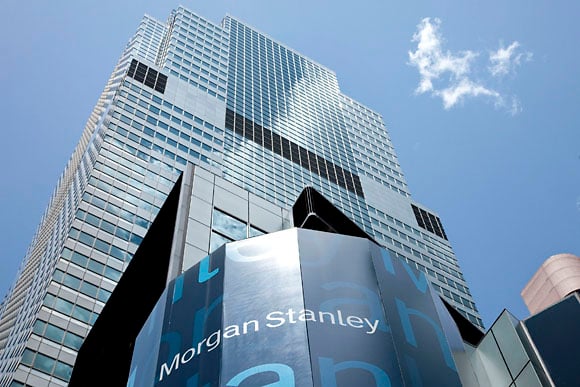Analyst Brad Hintz says Morgan Stanley could shut down its enormous trading business -- and the bank would still be worth more than what its stock is currently trading at. The takeaway? Investors are missing a good bet.
Morgan Stanley, owner of the world's largest brokerage, could shut down its trading businesses and the firm would be worth 28 percent more than yesterday's share price, according to Brad Hintz, a Sanford C. Bernstein & Co. analyst.
An analysis of the liquidation of the sales and trading operations, which constitute 80 percent of the firm's balance sheet, shows that the equity market is overreacting to impatience in the firm's turnaround, Hintz wrote in a note to investors today. Hintz said he isn't endorsing a dismantling of the trading operations.
Morgan Stanley shares have dropped 27 percent from their recent peak in February as investors express concern over new regulations and capital rules. After accounting for the planned conversion of Mitsubishi UFJ Financial Group Inc.'s preferred stake in the New York-based firm, the shares are trading at a 13 percent discount to tangible book value, Hintz said.
“We have long argued that absent a liquidity crisis, the mark-to-market balance sheets of Wall Street trading firms support a trough valuation at tangible book value,” Hintz wrote. “This is because at low valuations, an acquirer could simply liquidate the trading balance sheet, pay off the liabilities and walk away with more cash than they paid for the company. Thus, at certain P/TB levels, such as today, a broker is worth more dead than alive.”
Morgan Stanley rose 58 cents, or 2.64 percent, to $22.51 yesterday in New York Stock Exchange composite trading. The shares yesterday touched their lowest level since April 2009, and are on pace to fall this week, which would be the 14th decline in 16 weeks.
The current share price is undervalued even under the most pessimistic outlooks for regulation and retail investor activity, barring a major liquidity run similar to 2008, Hintz wrote. Morgan Stanley should pay off “handsomely” for long- term investors that buy now, he said.







